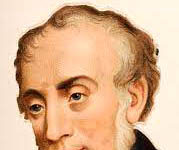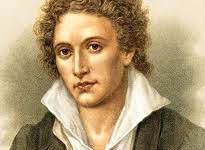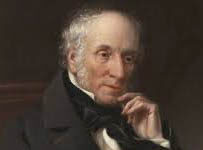Roles of Literature in Dissemination of Knowledge
Roles of Literature in Dissemination of Knowledge
Roles of Literature in Dissemination of Knowledge
Literature, a profound embodiment of human thoughts, feelings, and wisdom, holds the power to transcend time and place, serving as a paramount vessel for the diffusion of knowledge. Comparable to a skilled artisan who meticulously weaves together diverse threads to create a masterpiece, literature seamlessly intertwines narratives, ideas, and insights into a captivating mosaic of enlightenment. Throughout history, literature has stood as a testament to its unique capacity to impart knowledge, foster connections across generations, and stimulate intellectual growth, unequivocally demonstrating its paramount significance as an instrument for education and enlightenment.
Illuminating the Spectrum of Human Experience: Much like a virtuoso painter who employs an array of colors to craft a vivid tableau, literature employs a multitude of perspectives and emotions to vividly illustrate the spectrum of human experience. From the timeless narratives of bravery in Homer’s “The Odyssey” to the poignant exploration of societal prejudices in Harper Lee’s “To Kill a Mockingbird,” literature not only captures emotions, but also unfurls intricate tapestries of the human psyche and the dynamics of society. In George Orwell’s “1984,” the portrayal of a dystopian society serves as a reflective mirror, highlighting the perils of totalitarianism. This narrative metaphor underscores the importance of safeguarding individual freedoms, a lesson that continues to resonate through the corridors of time.
Conveying the Richness of Cultural Traditions: Literature serves as a seasoned weaver, entwining cultural traditions, values, and heritage into narratives that withstand the test of time. Through oral traditions, folktales, and literary classics, societies have meticulously passed down their customs and beliefs, crafting an intricate legacy that bridges generations and serves as a beacon of shared identity. The Indian epic “Ramayana” serves as an exemplar of cultural preservation, chronicling not only the heroic saga of Prince Rama but also transmitting the ideals of familial duty, righteousness, and the eternal struggle between good and evil, reverberating across geographical and cultural boundaries.
Navigating the Depths of Complex Philosophies: Literature, akin to a profound philosopher contemplating the essence of life, delves into intricate philosophical inquiries. It encourages readers to embark on a journey of introspection, pondering existential quandaries, ethical dilemmas, and the nuances of the human experience. Just as a skilled navigator plots a course through uncharted waters, literature navigates the depths of complex ideas, fostering a timeless dialogue that transcends epochs and geographical confines. Albert Camus’ “The Stranger” invites readers to grapple with the notion of absurdity and the inherent quest for meaning in an inherently chaotic world. Through the lens of its protagonist, the novel challenges societal norms and wrestles with the delicate balance between individual autonomy and societal expectations.
Fostering Empathy and Cross-Cultural Understanding: Literature serves as a bridge-builder, crafting connections by offering readers glimpses into diverse cultures, perspectives, and realities. Analogous to a culinary artist skillfully blending diverse ingredients into a harmonious dish, literature seamlessly melds narratives from varying walks of life, nurturing a universal sense of compassion and unity. Khaled Hosseini’s “The Kite Runner” takes readers on a poignant expedition through the tumultuous terrain of Afghanistan. Through its characters, the novel fosters empathy for individuals ensnared in the throes of political upheaval, personal tribulations, and the complex interplay of guilt and redemption.
Catalyzing Social Transformation and Advocacy: Literature, like a resounding call for societal metamorphosis, has historically catalyzed pivotal social reform. Writers wield their pens as instruments of change, casting light on injustices, inequalities, and pressing concerns. Analogous to a blacksmith forging tools to reshape the world, literature empowers readers to challenge the status quo and engage in transformative discourse. Upton Sinclair’s “The Jungle” exposed the appalling conditions within the meatpacking industry, triggering a wave of public indignation. This literary exposé ultimately prompted significant regulatory changes, underscoring the potential of literature to be an agent of change and a catalyst for social progress.
In essence, literature serves as an opulent repository of intellectual craftsmanship, skillfully interweaving threads of human experience, cultural heritage, philosophical contemplation, empathy, and activism into an intricate mosaic of enlightenment. Comparable to a maestro orchestrating a symphony, literature conducts a harmonious interplay of ideas, emotions, and knowledge, enriching the collective understanding of the world. As long as humanity thirsts for knowledge, seeks empathy, and yearns for transformation, literature will continue to weave an enduring tapestry of wisdom that bridges the past, present, and future, transcending boundaries and echoing through the corridors of time. 0 0 0.
Roles of Literature in Dissemination of Knowledge
N.B. The article ‘Roles of Literature in Dissemination of Knowledge’ originally belongs to the book ‘The Origin Evolution & Functions of Literature‘ by Menonim Menonimus. Roles of Literature in Dissemination of Knowledge
Books of Literary Criticism by M. Menonimus:
- World Short Story Criticism
- World Poetry Criticism
- World Drama Criticism
- World Novel Criticism
- World Essay Criticism
- Indian English Poetry Criticism
- Indian English Poets and Poetry Chief Features
- Emily Dickinson’s Poetry-A Thematic Study
- Walt Whitman’s Poetry-A Thematic Study
- Critical Essays on English Poetry
- Tawfiq al-Hakim’s Novel: Return of the Spirit-An Analytical Study
- Tawfiq al-Hakim’s Novel: ‘Yawmiyyat Naib Fil Arayaf’-An Analytical Study
- Analytical Studies of Some Arabic Short Stories
- A Brief History of Arabic Literature: Pre-Islamic Period (500 AD-622 AD)
- A Brief History of Arabic Literature: Early Islamic Period (622 AD-661 AD)
- Reviews on William Shakespeare’s Works
- Reviews of Charles Dickens’ Works
- Reviews of John Milton’s Literary Works
- Reviews of Some Iconic Travelogues
- Shakespeare’s Sonnets-Critical Studies
- Analytical Studies of Selected Poems of Sarojini Naidu
- Analytical Studies of Selected Poems of Rabindranath Tagore
- Analytical Studies of Selected Indian English Poems
- Reviews of Selected Motivational Books
- Origin Evolution & Functions of Literature …
Additional Searches::
- The Functions of Literature
- Evolutionary Literary Study
- Functions of Literature
- Principles of Literature
- Literary Theory
- The Crucial Roles of Literature
- The Importance of Literature in Modern Society











